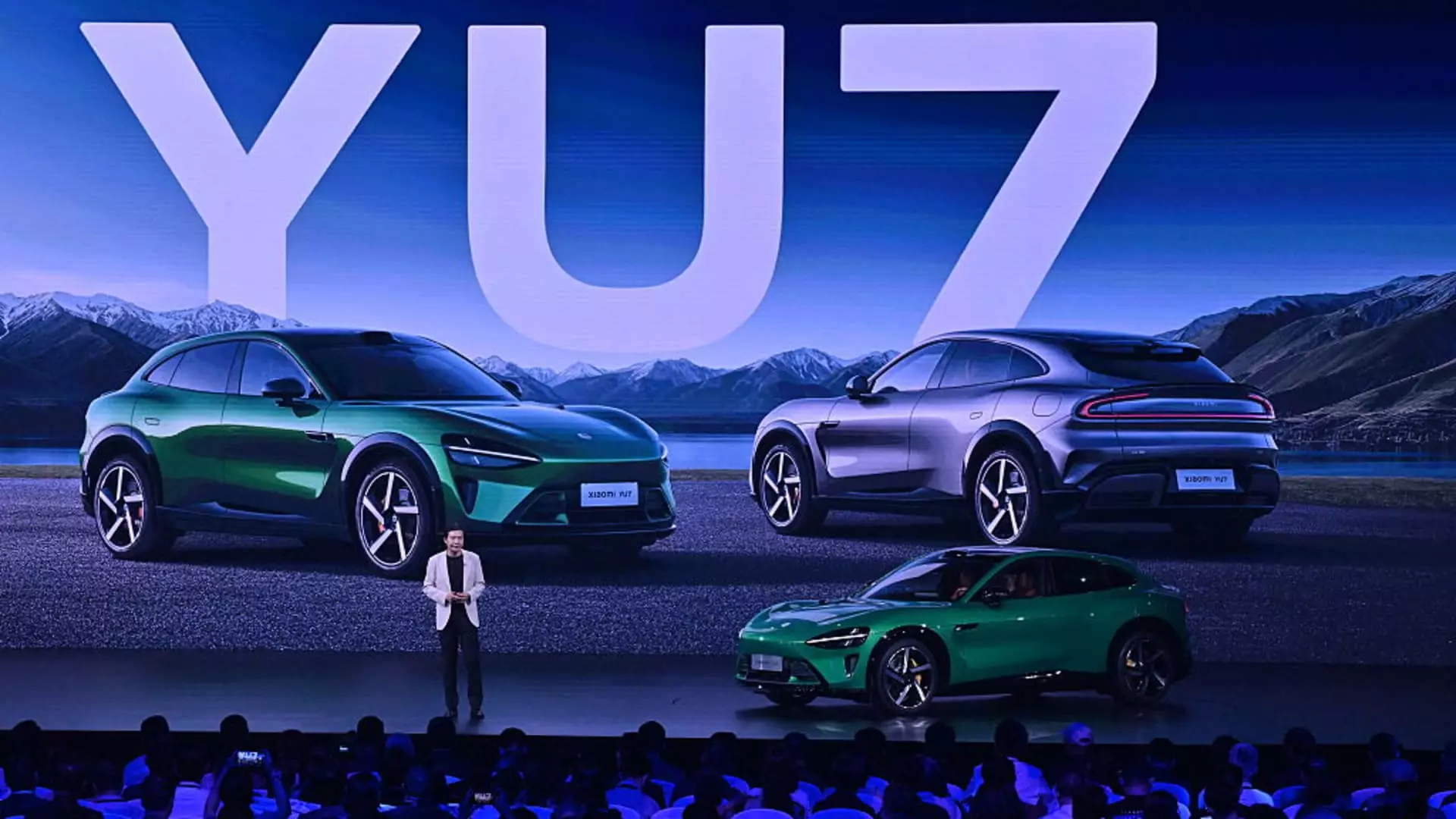The electric vehicle (EV) sector is a battlefield where Tesla has long held a commanding lead, especially in the world’s largest EV market—China. However, Xiaomi, traditionally a smartphone powerhouse, has recently taken a formidable step into this arena, rolling out its YU7 SUV—a model that promises to challenge the status quo. With an impressive claimed driving range of 760 kilometers on a single charge, the YU7 is making bold claims that could shake Tesla’s grip on the Chinese market, particularly its Model Y, which currently boasts a range of 719 kilometers.
Xiaomi’s foray into the auto industry is not just a side project; it represents a calculated gamble by a tech giant that has successfully disrupted multiple sectors. With a blend of aggressive pricing and vast marketing reach, the YU7 aims to swiftly capture consumer interest and loyalty.
Price Wars: The Game Changer
Pricing is one of the fiercest battlegrounds in the EV market, and here lies one of Xiaomi’s most potent weapons. The anticipated price range for the YU7, between 250,000 yuan and 320,000 yuan (approximately $34,700 to $44,420), is strategically positioned to compete directly with Tesla’s Model Y, which starts at 263,500 yuan in China. This pricing strategy does not merely represent a cost comparison; it reflects Xiaomi’s broader philosophy of making cutting-edge technology accessible. If Xiaomi delivers on its projections of selling 30,000 units monthly, analysts like Citi’s Jeff Chung suggest that the YU7 could significantly slash Tesla’s market share in China.
This level of undercutting indicates that Xiaomi is prepared not only for a pricing war but is also banking on the idea that their brand loyalty will transfer from smartphones to vehicles. With more affordable options, consumers may flock to Xiaomi out of a desire for value without sacrificing quality—essentially an enticing proposition in a market that is often starved for affordable luxury.
Range Anxiety: A Key Selling Point
Range anxiety remains a predominant concern among potential EV buyers, effectively deterring many from transitioning to electric options. However, Xiaomi’s YU7 is aiming to alleviate these fears with its extensive driving range capability. Not only does it rival Tesla’s advertised range, but it also positions itself as a superior alternative. Automakers know that consumers look for re-assurance and reliability, and if Xiaomi can deliver on its promises, the YU7 may well position itself as the go-to vehicle for a new generation of eco-conscious consumers.
In a market where psychological factors such as range anxiety play a significant role in purchasing decisions, Xiaomi’s prioritization of this aspect demonstrates an astute understanding of what consumers desire. This strategic focus on addressing consumer concerns alongside an attractive price point could very well pave the way for a shift in market dynamics.
Brand Power: The Xiaomi Ecosystem Advantage
Moreover, Xiaomi is not just a car manufacturer; it’s an ecosystem. The company’s existing position in the tech space provides a unique multiplatform offering for consumers, who are increasingly valuing seamless integration across devices. Imagine a scenario where your smartphone seamlessly communicates with your EV, allowing for seamless navigation, control, and optimizations. Linkages like these not only offer convenient user experiences but also foster brand loyalty—an essential ingredient in today’s consumer landscape.
Xiaomi’s capability to integrate technology solutions into their vehicles can further enhance product appeal. If Xiaomi successfully weaves a narrative of interconnectedness through its diverse electronics ecosystem, it will stand out as a brand that is more than just a traditional car manufacturer.
Addressing Safety Concerns with Transparency
In the past, concerns regarding safety and driver-assist systems have surfaced, particularly after unfortunate accidents involving EVs. The Chinese government has begun mandating stricter guidelines to govern how automakers market their driver-assist technologies, and Xiaomi must navigate this landscape carefully. Transparency in advertising could serve as an essential differentiator for Xiaomi in setting consumer expectations versus experiences.
By presenting a commitment to safety alongside innovative technology, Xiaomi can build confidence among its consumer base, particularly when considering their first EV. Addressing past incidents openly could also position Xiaomi as a forward-thinking leader in the auto industry, setting a precedent for responsible innovation in a rapidly evolving sector.
In a market often dominated by traditional automotive giants and tech newcomers like Tesla, Xiaomi’s YU7 presents a distinctive challenge. The intersection of competitive pricing, consumer demands for range, brand synergies, and transparent communication about safety could together forge a new path for the company’s ambitious venture into the world of electric vehicles.

